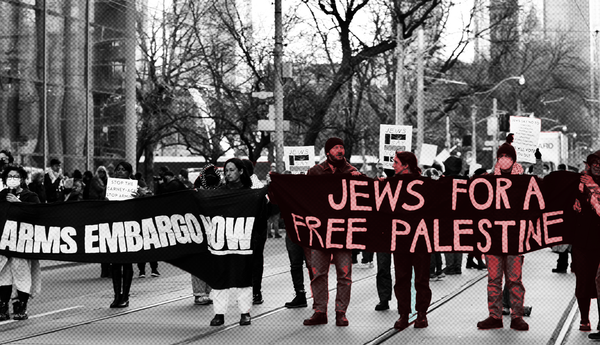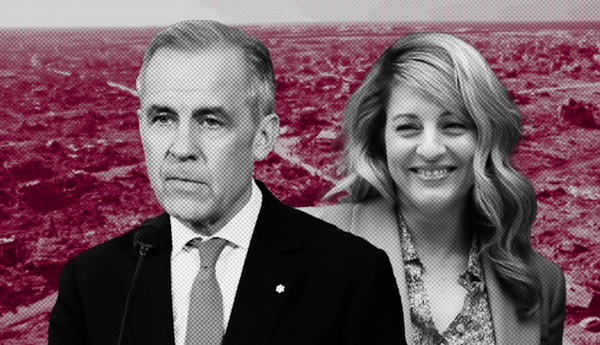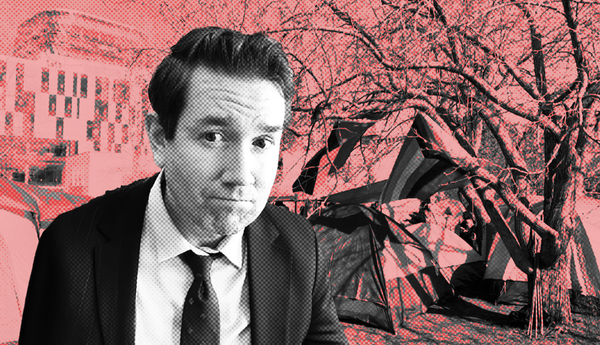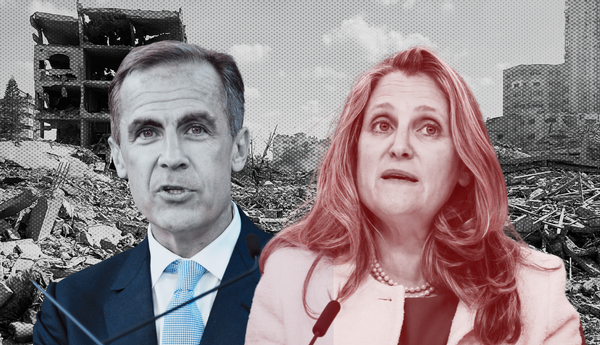Global News refused to air two interviews on its national television broadcast that were critical of Israel’s war on Gaza and its occupation of Palestine, The Maple has learned.
Both interviews were conducted by Farah Nasser, a Global anchor who later parted ways with the company, according to two former employees of the network. The Maple is not identifying the sources by name to protect their ongoing employment in the media industry.
The first piece that Global refused to air was an interview by Nasser with Israel’s ambassador to Canada, Iddo Moed, that became heated, the two sources said. The interview was recorded in October 2023 but never aired on television and wasn’t posted online.
The second piece, an interview with Nelson Mandela’s great-grandson Siyabulela Mandela, was posted on YouTube in November 2023 but did not air on Global’s flagship cable broadcast, Global National.
Blocking an anchor’s work from appearing on Global’s flagship cable broadcast was “extremely rare,” one of the former Global employees said. Nasser’s job was to report for the national television show — not the Global News website or YouTube page, the former employee said.
The employee, who did not work on the specific interviews that were not aired on Global National, said their managers explained that Global wouldn’t publish stories that were too critical of Israel because they were worried about backlash from pro-Israel lobby groups.
A spokesperson from Global’s parent company, Corus Entertainment, denied that fear of backlash from the pro-Israel lobby dictates what Global’s managers allow the company’s journalists to report.
“Our journalistic principles and practices, grounded in fair and balanced reporting [...] guide our reporting,” the spokesperson, who asked not to be named, wrote in an email to The Maple.
“We did not run the interview with Ambassador Moed as it did not meet our editorial standards. The interview with Mr. Mandela did not lend itself to a Global National (GN) broadcast treatment. We felt it was more appropriate to publish this piece on globalnews.ca. Stories we cover on globalnews.ca are not always or necessarily reflected on GN and vice versa.”
Jason Toney, director of media advocacy at Canadians for Justice and Peace in the Middle East, said Global’s refusal to air the interviews on its flagship show is condemnable.
“Western media’s self-censorship of stories that are critical of Israel is untenable,” he wrote in an email to The Maple. “Too many people have been exposed to the countless images and videos of Israeli war crimes committed against Palestinians.”
“The already fractured trust in the media is ever more strained, and deservedly so.”
In the interview with Mandela, Nasser specifically asked what similarities he saw between current events in Israel and what happened during apartheid South Africa.
“The position that the government and the general public has taken in South Africa is to say what Israel is doing to the people of Palestine it is in fact an apartheid state […] We argue it is that because we went through it,” Mandela said.
“The signs are pointing to the fact that each and every step, from land dispossession to systemic violence to [...] occupation and the continued senseless violence, the genocides that happen, it points to the effect of exactly the characteristics of what the apartheid regime was in South Africa.”
Most importantly, he said, the same narratives being pushed about Palestine’s supporters today — that they are promoting terrorism — were also pushed about South Africans who resisted apartheid.
“Nelson Mandela, the leader that is widely celebrated by the world today, was [the U.S. government’s] terrorist Number One,” his great-grandson said.
The pro-Israel group Honest Reporting Canada (HRC) launched a campaign against Global and Nasser after her interview with Mandela.
HRC launched another campaign against Global and Nasser in May after she reported on Israel’s use of American bombs to kill at least 45 Palestinians in Rafah.
The treatment of Nasser’s work was not the only case of Global journalists either being discouraged or prevented from reporting critically on Israel’s war on Gaza, one of the former employees said.
The journalist said that certain reporters who pitched stories about Gaza and pro-Palestine demonstrations — types of stories that would normally be given the green light if they were about other topics — were suddenly not given approval without explanation.
The journalist also said they were reassigned without explanation after being instructed to cover a story about a large pro-Palestine protest action.
Global managers also censored the content that journalists shared on their social media accounts, the former employee said. Throughout the war on Gaza, the source said they were told several times a month to remove tweets or to be more careful about what they were posting.
One of the posts the journalist said they were told to remove was a Reuters news article about the number of Palestinians killed by Israel. The journalist’s manager said the reporting was not verifiable.
Global, however, is a client of Reuters and regularly publishes the wire service’s content on its website. The policy not to share reports from other news outlets on social media was “100 per cent” a double standard that only applied to Gaza, the former employee said.
The Corus spokesperson said journalists’ social media accounts must adhere to the company’s journalistic principles and practices. “If a particular post does not adhere to these guidelines, we ask that it be removed.”
The statement did not address why Reuters stories would be unacceptable for journalists to share on social media when Reuters copy is regularly published on Global’s website.
Emma Paling is a journalist and writer in Toronto. Her award-winning reporting has been published widely by CBC News, The Breach, HuffPost and Vice.






